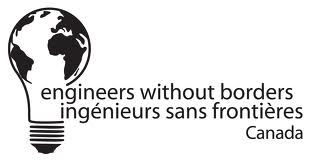/topics/ecology-and-environment
Ecology and Environment
Our water woes: Ecological imbalance is the culprit!
Posted on 12 Mar, 2012 12:01 PMAuthor : Madhuranthakam Prabhakar Rao
Implementation of the interlinking of rivers project (ILRP): Bangladesh raises concerns
Posted on 12 Mar, 2012 11:50 AMAuthor : Md. Khalequzzaman, P.D.
FERAL invites applications JRF position for Puducherry - Apply by March 2012
Posted on 11 Mar, 2012 10:58 AM![]()
FERAL is a team working on various aspects of applied research on ecological and environmental issues. Our key areas of work include wildlife conservation, ecological restoration, natural resource management and capacity building in these areas. To provide a base and support for young researchers to follow their research interests and priorities. To impart training in ecological research, field survey techniques and tools. To apply ecological research to solve issues in natural resource management, conservation and advocacy.
Climate change - Perspectives from India - A document published by UNDP, India
Posted on 10 Mar, 2012 06:08 PMThe document argues that climate change is no more an environmental concern. It has emerged as the biggest developmental challenge for the planet. Its economic impacts, particularly on the poor, make it a major governance issue as well. The debates and discussions building up for the next conference of parties (CoP) in Copenhagen and beyond are an indicator of this.
Lessons for rural water supply - Assessing progress towards sustainable service delivery - India - IRC International Water and Sanitation Centre, The Hague
Posted on 10 Mar, 2012 04:24 PMThe study looked beyond a simple description of the situation towards broader processes of decentralisation and political leadership, in an attempt to unpack what has gone right or, as in many cases, what has gone wrong, within the rural water sub-sector.
Towards a progressive Indian and global climate politics - A CPR Climate Initiative Working Paper
Posted on 09 Mar, 2012 07:04 PMHowever, on each of these issues, there is a healthy under-current of domestic debate. Moreover, broad agreement on this perspective does not translate to strategic unanimity. There are three divergent positions within India: growth-first stonewallers, progressive realists, and progressive internationalists.
A critical assessment of climate change impacts, vulnerability and policy in India - Paper published in Present Environment and Sustainable Development
Posted on 09 Mar, 2012 05:40 PMThere is considerable disagreement on the extent of the changes in the variables of climate.
Foundation for Ecological Security invites applications for dean, Anantapur,Tirupati, Andhra Pradesh - Apply by March 17, 2012
Posted on 09 Mar, 2012 09:52 AMContent courtesy: DevNetJobsIndia

Foundation for Ecological Security (FES) works towards the ecological restoration and conservation of land and water resources in ecologically fragile and degraded regions of the country through the concerted and collective action of rural communities. FES's work with land, water and people is governed by a deep appreciation of inter relationships – inter relationships between natural and human systems, different ecosystems within a landscape and different elements within an ecosystem. By valuing these interlinkages, FES attempts to catalyze collective action, access economic opportunity and ensure the resilience of both, rural endeavour and natural endowments.
The GreenKarbon inter-college debate, St. Joseph's College v/s Mount Carmel College, March 9, 2012, Bangalore
Posted on 08 Mar, 2012 09:34 AMOrganizer: Sanctuary Asia
Venue: St. Joseph's College of Arts and Science,
St. Xaviers Auditorium,
Bangalore
Challenge of the Balance, CSE, August 1-30, 2012, New Delhi
Posted on 07 Mar, 2012 10:01 AMOrganizer: Center for Science & Environment (CSE)
Venue: Anil Agarwal Green College
38, Tughlakabad Institutional Area
New Delhi–110062


Objective:
This inter - disciplinary month long structured course on environment / development issues is for about 25 participants from various international institutions of learning. For this summer school we have collaborated with Engineers Without Borders (EWB) United Kingdom, and EWB chapters in South Asia as well.





